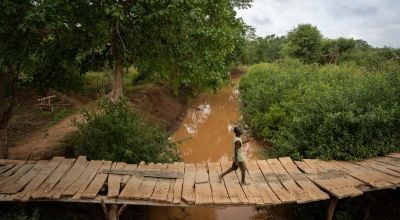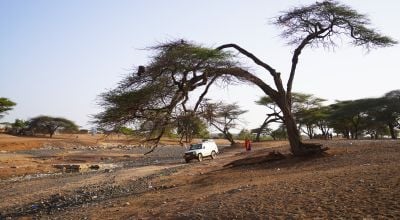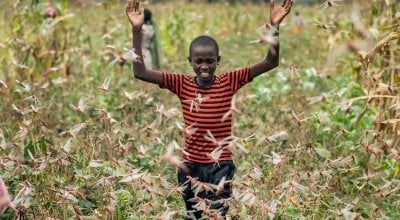
Read our 2023 annual report

Knowledge Hub
Access to clean water is a big deal, especially for women like Filema
The ECHO funded water scheme in Ethiopia saves Filema a two-hour round trip each time she needs water for her household and is a positive contribution to her family’s health and quality of life.
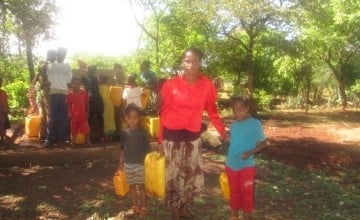
Providing access to clean water
Concern Worldwide secured funding from the European Civil Protection and Humanitarian Aid Operations (ECHO) to implement an emergency Water, Sanitation and Hygiene (WASH) project to provide clean water to 10,500 people in Abela Ajeja and Abela Sipa kebeles of Humbo Woreda District in Wolaita, south-west Ethiopia. The project rehabilitated two boreholes, two springs and 14 km of water pipe line with 13 communal water points.
Previously, most households had to travel long distances to fetch water for their households. In 2015/2016 the situation was worsened by the El Nino induced drought and dirty water led to increases in water borne diseases such as diarrhoea which greatly aggravated malnutrition in children.
A two hour round trip for water
33-year-old Filema Mekonen is married and the mother of three children. She’s a resident of Abela Sippa kebele and is dependent on subsistence agriculture. Her annual income is 3,000 birr (€93 per annum or less than €8 per month). Here, Filema describes her living conditions prior to the work carried out by Concern.
"I walked for more than 1 hour each way to fetch water for cooking, drinking and other purposes from the nearby river. At the river, the water was gathered by digging in the sand. We had to travel early in the morning, before livestock came into contact with the river and even then, it was not clean water. We often got diarrhoea, especially our children. We also travelled late at night when there was no livestock in order to get relatively cleaner water. Unless we were guarded by our husbands or other grown men, we were often subjected to risks of wild animal attacks or rape.
"Due to my busy household schedule, I required the help of my children to fetch water and my 15-year-old son was always either late for school or absent as a result. Even my six-year-old daughter was required to fetch water from that risky area because I had no option. Sometimes, when we were at the river doing laundry, unexpected flooding would arrive and sweep away all of our clothes and jerrycans.
"The river wasn’t always reliable either. Sometimes it failed to provide water. During such dry periods we were forced to get water from a nearby town called Tebela and pay 2 birr (6 cents) for a 20 litre jerrycan of water and 10 birr (30 cents) for transport home. We do communal farming in our area but due to the length of time it would take me to collect water, I was often late and the other participants in the community would complain. This created conflict with my husband as it damaged his social acceptance in the community."
![Filema collecting water from the point 150 metres from her home. Photo: Megan Stirling, Concern Worldwide.]](https://admin.concern.net/sites/default/files/styles/360x220/public/media/migrated//filema%25202.jpg?changed=2019-04-17T06:14:13+00:00)
“For us women it is a big deal, trust me”
Filema explains what easy access to clean water means to her:
"Now, thanks to Concern, we have water that is not just accessible but also of good quality. Previously, we used to consume no more than one jerrycan of unsafe water a day but now we are consuming up to four jerrycans of healthy water a day without travelling long distances. This may not seem like much but for us women it is a big deal, trust me. My children are also now attending school without any interruption because I now have plenty of time to manage the household activities."
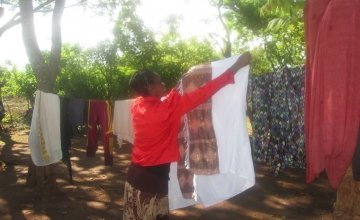
“We don’t want to go back to our previous situation”
Filema explains how the community values the clean water supply system:
"Now we need to think about maintaining the scheme for a long time. Concern gave us training on how to manage the scheme and it is up to us to watch out for it. We are very much committed to this because we don’t want to go back to our previous situation."
Learn more about Concern
Learn more about the diversity of our work in 26 countries worldwide.
In depth



